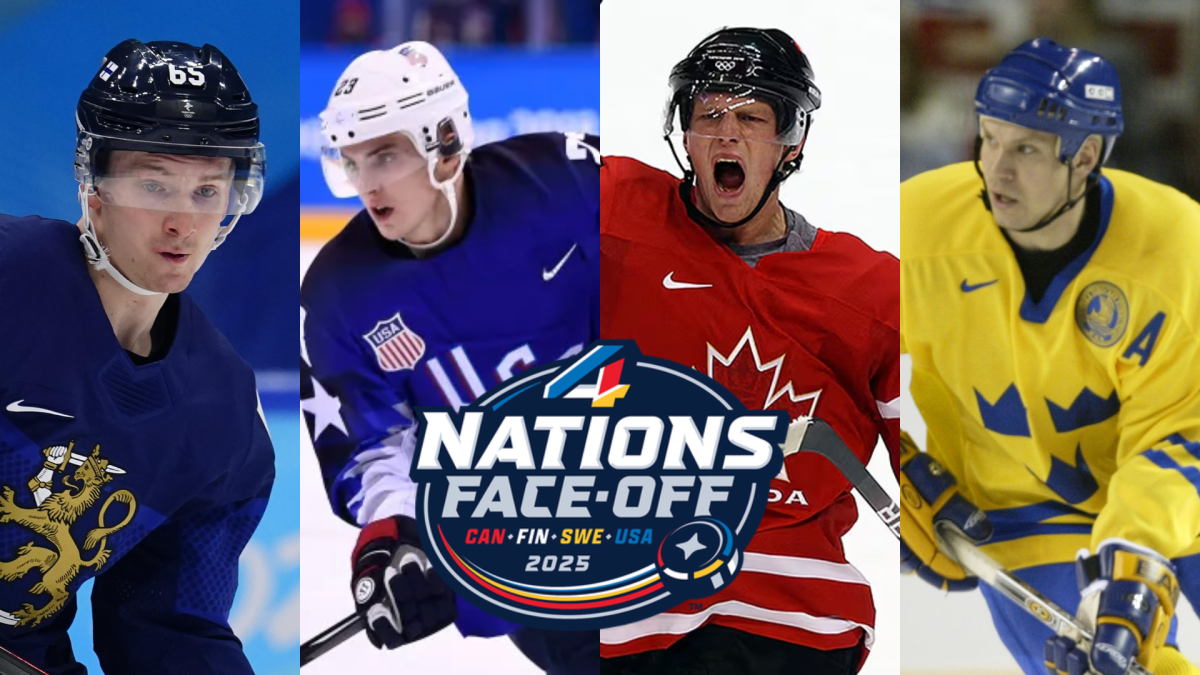It is no secret that the National Hockey League’s (NHL) international presence in the hockey world is waning. Aside from the World Junior Championship — where NHL fans can follow their teams’ top prospects — international hockey has largely been absent from the league, its players and its fanbase for quite some time. Players have not participated in the Winter Olympics since 2014 in Sochi, Russia. More recently in 2016, we saw the third installment of the NHL-sanctioned World Cup of Hockey, which was supposed to return in 2020, but the COVID-19 pandemic derailed those plans. Furthermore, in the case of Russia — a country home to many of the league’s top players — now suspended from international competition until further notice due to multiple geopolitical reasons, professional-level international tournaments were nonexistent for years.
Until now — maybe.
At the 2024 All-Star Game, the NHL announced there would be no 2025 All-Star Weekend. Instead, we will see the debut of the 4 Nations Face-Off, featuring Team Canada, Finland, Sweden and the United States. The tournament is scheduled to take place from Feb. 12-20 in Montreal and Boston. The format consists of a round-robin stage, culminating in a single-game final between the top two teams.
In theory, this sounds like an exciting idea for both fans and players. The tournament generated significant buzz early on, and the concept was well received. However, with just a couple of weeks to go, it now appears to be a business disaster in the making for several reasons.
While the International Ice Hockey Federation’s (IIHF) decision to ban Russia from international tournaments is understandable, its impact on this event is undeniable. Currently, only about 5% of the NHL’s players are Russian, but that small percentage consists of some of the league’s most electrifying talents. Superstar forwards like Nikita Kucherov, Artemi Panarin, Kirill Kaprizov in addition to Alex Ovechkin would have made Russia a powerhouse. On the defensive, names like Mikhail Sergachev and Nikita Zadorov stand out. And in goal? The potential tandem of Igor Shesterkin, Andrei Vasilevskiy, Sergei Bobrovsky and Ilya Sorokin would have been a nightmare for opposing shooters. In short, the absence of Russian players is a significant loss for the tournament’s overall competition and star power.
That said, Russian players might not mind being excluded, as it allows them a week-long break during an already grueling NHL season. While there’s no greater honor than representing your country, the reality is that these players are focused on winning the Stanley Cup — not a short round-robin tournament with no semifinals.
Alex Pietrangelo was the first to express this sentiment, citing an “undisclosed injury” as his reason for withdrawing. However, after making that announcement, he was on the ice for the Vegas Golden Knights’ next game, raising questions in regard to whether players are opting out simply to rest. In the NHL, being “healthy” is a broad spectrum — many of the league’s best players are likely banged up or fatigued but still technically fit to play, so can you blame them for wanting to take advantage of this lengthy in-season break?
Unlike the All-Star Game, where skipping results in a one-game suspension, there are no consequences for players opting out of the 4 Nations tournament other than their pride. That means more players may follow Pietrangelo’s lead, choosing rest and recovery over participation. For a veteran who has already won two Stanley Cups, an Olympic gold medal and a World Junior Championship, what more is there to prove? And honestly, as a Rangers fan, I wouldn’t mind if Chris Kreider did the same — he looks like he can barely bend his back when he skates. I’m sure fans of other teams have similar feelings about their own players.
Hockey players are known for their toughness, but this tournament falls right in the middle of a crucial stretch of the season — a prime time for recovery before the playoff push.
Now, let’s address the elephant in the room. Who is paying over $150 for nosebleed seats to watch Canada vs. Finland on a Monday afternoon in Boston? The answer is simple: no one.
Not only has the NHL scheduled weekday games that limit accessibility, but they’ve also slapped hefty price tags on tickets for a poorly marketed tournament. In mid-January, Chris Johnston reported that the NHL and the NHL Players’ Association (NHLPA) were concerned about sluggish ticket sales and planned a marketing push later in the month. Well, as I write this, it’s Jan. 29, and as someone deeply involved in the online hockey community, I’ve seen zero promotional efforts.
Here are the get-in prices on SeatGeek for each game:
Canada vs. Sweden – $136
USA vs. Finland – $60
Finland vs. Sweden – $52
USA vs. Canada – $354
Canada vs. Finland – $112
Sweden vs. USA – $178
Championship Game – $219
With pricing and scheduling issues, it’s no surprise that ticket sales are struggling. The NHL and NHL Players’ Association should have seen this coming.
The 4 Nations Face-Off has the potential to be an amazing event, showcasing the best-on-best competition that the hockey world has been craving. Otherwise, this tournament could go down as another missed opportunity for international hockey.






































































































































































































